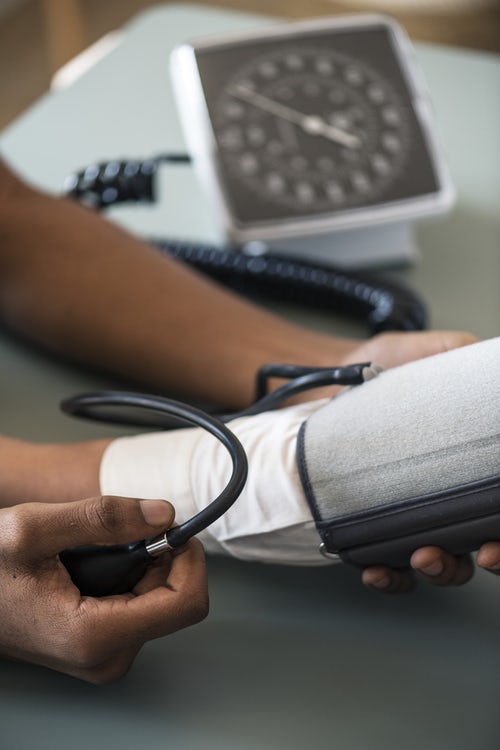Once you have returned home, check-in with your doctor to inform them about your time in captivity. Make sure you mention any problems identified or any medical treatment you received immediately upon release. You should work with your doctor or medical professionals assigned to you to work through short and long-term problems. It can take a while to recover, so be patient with yourself. Diagnosis and treatment should be conducted by medical professionals but this section explains the few common problems that former hostages often face.
Hostage International can support you with all these matters and with others through our free Family and Hostage Support Service. Contact us to learn more.
Physical health

Sleep
Stress from a traumatic event, such as a kidnapping, can often lead to a variety of sleep problems.
You should not be surprised if you have an irregular sleeping pattern following your return home. Upon release, some former hostages find they need much more sleep than normal or fall asleep at any hour of the day or night. Others find that sleep disturbance is a common problem; they may struggle to fall asleep or stay asleep. Sleep deprivation can have a significant impact on your mood and behaviour, heightening feelings of frustration, impairing concentration, and increasing irritability with those around you. If sleep problems continue over a longer period of time, they can also start to have an effect on your physical health.
While sleep issues are frustrating and can have a negative impact on your wellbeing, you should not expect to have a normal sleep pattern straight away. Be patient as it takes time to readjust to your home surroundings. A healthy diet and working your body slowly into a routine can help resolve sleeping problems.
Nutrition
Ask your doctor if you can be referred to a dietitian when you return home so you can receive tailored advice about your diet. Hostages that have been held for long periods can suffer from malnutrition as a result of their poor diet during captivity. If left untreated, the effects of poor diet can lead to other health problems and also be associated with lethargy and depression.
Your dietary plans will depend on your individual circumstances, but it’s likely you will be advised to build and change your diet gradually. You may also be advised to take special nutritional supplements.
If you have any digestive problems raise them with a medical professional.
Exercise and well being
Even relatively short periods of physical inactivity can result in muscle wastage or atrophy, so do not be surprised if you feel physically weak or find light physical movement difficult after being in captivity. Work with medical professionals to build your fitness up to your desired levels. If your time in captivity has had an extreme impact on your physical health, there are a number of treatments, including exercise, physiotherapy and ultrasound therapy.
Dental problems
Your diet, hygiene facilities and length of time in captivity will have had an impact on your dental health. Make sure you get a full dental check-up after your release. Sometimes significant dental work needs to be carried out.
Dealing with the impacts of mental trauma

A kidnapping is a traumatic event. You may experience a number of different reactions to having been held hostage, all of which are entirely normal given the circumstances. It is important to look out for signs that you might be suffering, but remember that very few former hostages go on to experience long-term post-traumatic stress disorder (PTSD) – most are able to recover and go on to live positive and fulfilled lives.
In general terms, the psychological impact of being taken hostage is similar to that of being exposed to other trauma, including terrorist attacks and natural disasters.
Former hostages can experience the following stress problems when they return:
Emotional reactions, such as shock and numbness; fear and anxiety, panic; helplessness and hopelessness and dissociation; anger which could be directed at anyone, such as the perpetrators, the authorities or yourselves; a loss of pleasure in doing things they previously enjoyed; depression; and guilt, whether at having survived if others died, or for being taken hostage;
Cognitive problems, such as impaired memory and concentration; confusion and disorientation; intrusive thoughts or ‘flashbacks’; denial that the kidnapping happened; and hyper-vigilance, hyper-arousal and a profound fear of being kidnapped again; and
Social problems, such as feeling withdrawn; irritable; or practising avoidance of anything that reminds you of the event.
Stress symptoms like these can be very daunting. If you experience them try and remember that these are normal given what you have been through. Also, everyone experiences them at different times, so they may not appear until months or years later and they may come and go over many years. But if these feelings become overwhelming or sustain themselves beyond eight weeks, you might want to report them to your doctor and seek professional mental health support.
Meaningful social support and self-care after trauma are known to prevent symptoms manifesting into post-traumatic stress disorder (PTSD). Even those who go on to suffer from PTSD can overcome these problems with the right professional support.
If you would like to learn more about PTSD, we hope these videos will help: PTSD – The signs and symptoms, and Feelings other than PTSD.
Hostage International can support you with all these matters and with others through our free Family and Hostage Support Service. Contact Us to learn more.

